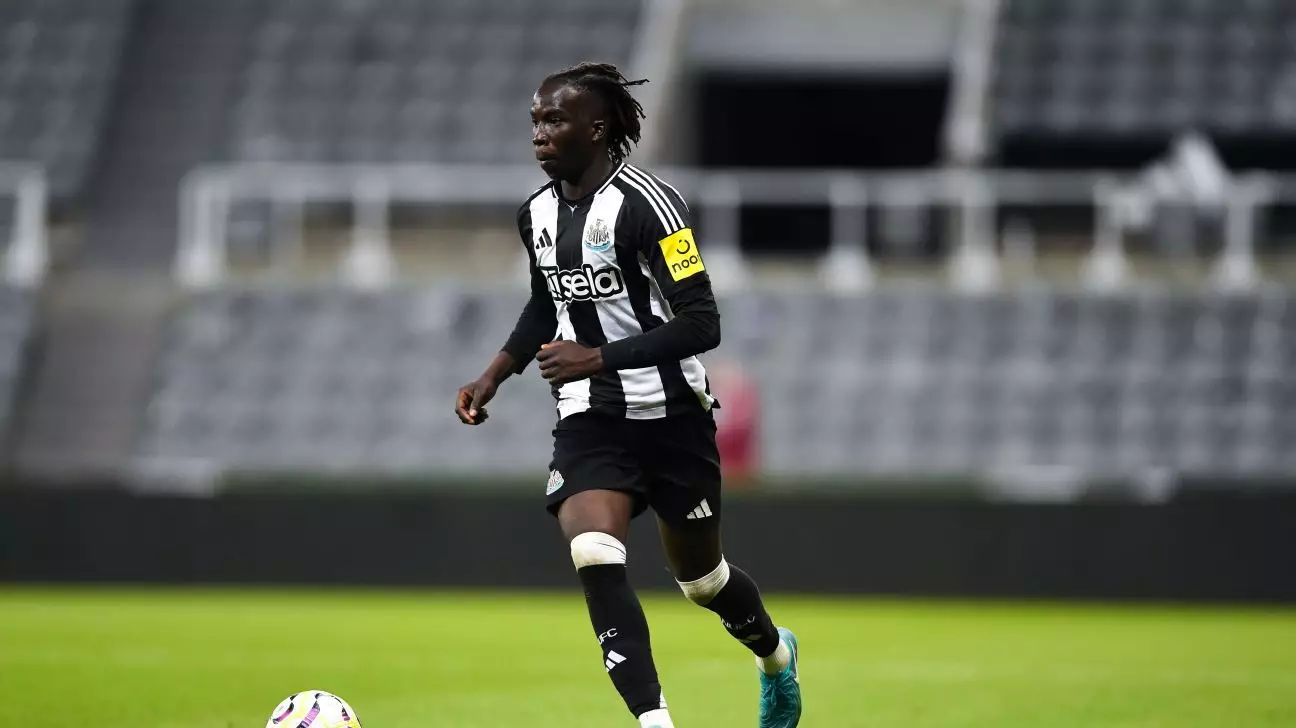Garang Kuol’s story is one of resilience and ambition. Born in a refugee camp in Egypt and raised by South Sudanese parents, Kuol emigrated to Australia, where he quickly made a name for himself in football. His journey is a testament to overcoming adversity. At 20, he stands at a crossroads in his career, having joined Newcastle United in 2022 after dazzling audiences with his performances in the A-League. Fans were optimistic that he would soon be a key player for the Magpies, but his path has not been straightforward.
Kuol’s stint with Newcastle has been a mixed bag. While he has excelled in the Under-21 squad — bagging eight goals and five assists in just 11 appearances — he has yet to break into the first team. Instead, he has found himself shuttling between loan spells at Hearts and Volendam. The question looms large: how long should a young talent wait for first-team recognition in a competitive environment like the Premier League?
The Need for Game Time
Speaking candidly to ESPN, Kuol expressed that a vital aspect of progressing his career is securing regular first-team football. It’s a clarion call from a player acutely aware of the importance of game time. Busyness in the Under-21s may feel productive, but it pales compared to the electric atmosphere and level of competition in the senior squad. “The most important thing for me is to be able to play senior football,” he said, hinting at a looming desire to forge a successful career, one that requires more than reserve matches.
Time is of the essence, too. With a contract culminating in just over a year, the pressure is on Kuol to make the right choices in the upcoming January transfer window. While he recognizes the value of being developed within Newcastle’s infrastructure, the clock is ticking on his ambition. He is caught between being patient and the inherent need for progress.
Lessons from Loan Spells
Kuol’s loan experiences have been valuable for introspection and growth, though not without their challenges. His time at Hearts started off promisingly, but circumstances changed swiftly. After an early injury, he found himself struggling for minutes. The managerial shake-up sidelined him further, illustrating the unpredictability of professional football. “I missed opportunities there, and probably performed the best I could when I did have the opportunity,” Kuol said, revealing the bittersweet nature of these experiences.
Similarly, his spell at Volendam offered yet another stark reality of the sports world. With the coaching staff that initially brought him in dismissed, Kuol once again found himself battling for playing time. These episodes have not only tested his mettle but have also provided him with valuable insights into the brutal realities of the sport he loves. “It’s a high-pressure environment,” he remarks, capturing the essence of a young player navigating through the fluctuating tides of professional football.
A New Perspective on Development
What stands out in Kuol’s reflections is his candid acknowledgment of growth through hardship. Although it may seem like a setback to some, he views his injury as “probably a blessing in disguise.” His time with the under-21 squad has given him the unique opportunity to consistently play 90 minutes weekly. “I think I played less than five 90-minute matches from 17 until 20 years old. It’s crazy because that’s what young players need the most,” he notes, underscoring the importance of playing consistently — a key ingredient often overlooked in professional settings.
Moreover, Kuol’s openness about his willingness to return to the Eredivisie for more development opportunities reflects a mature understanding of the game. He relished the tactical and technical aspects of Dutch football and recognizes its value as a nurturing ground for his skills. The Netherlands is firmly on his radar, and the experience he gained there continues to resonate with him.
Tracking the National Team Goals
On the international front, his absence from the Socceroos squad for over two years weighs heavily on his aspirations. Kuol epitomizes the spirit of wanting to serve his country, understanding that national representation is intrinsically tied to club performance. “I think what I do in the summer will be crucial,” he said, navigating the delicate balance of club and country. His ambitions don’t stop at personal success; they extend to wearing the green-and-gold jersey once again.
Kuol’s narrative serves as an important reminder that success is not linear. Every young athlete will encounter hurdles on their path to greatness. For Kuol, the pivotal summer ahead holds all the promise of unlocking his potential — it is a moment where ambition, strategy, and resilience must converge to redefine his future in the sport.

